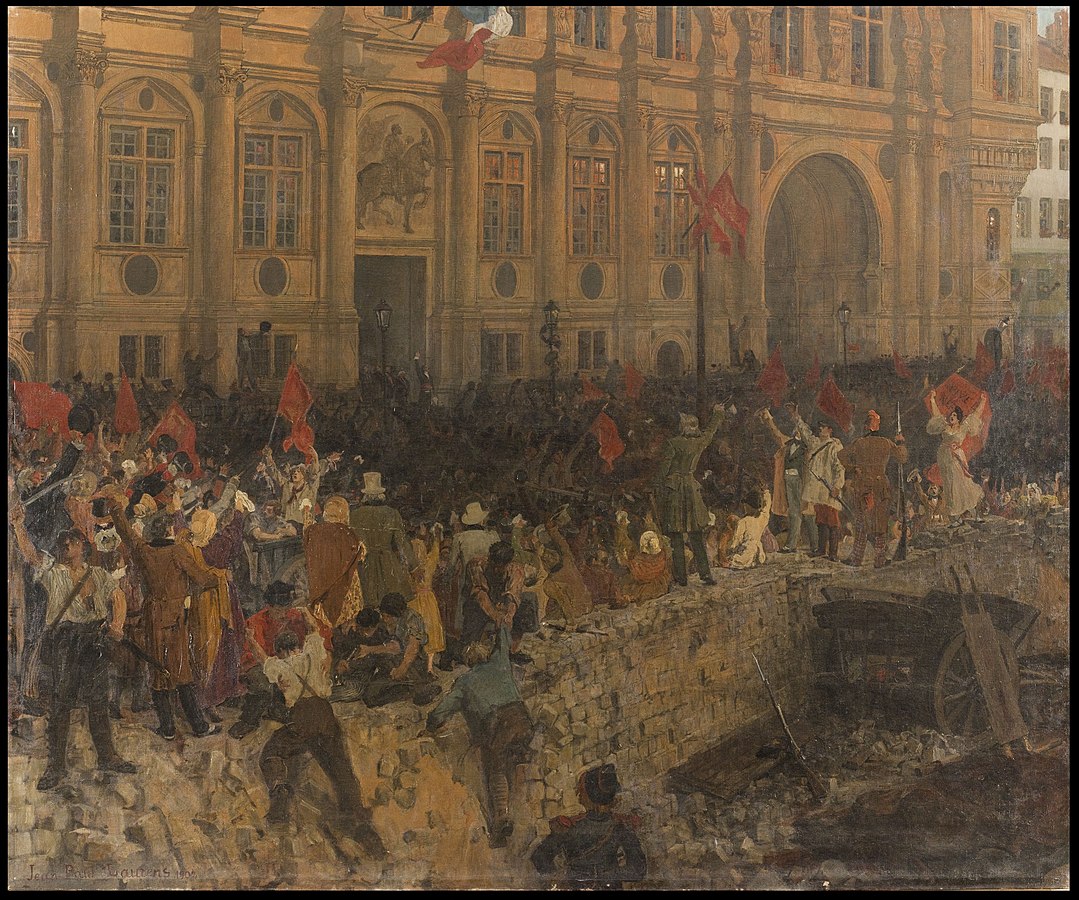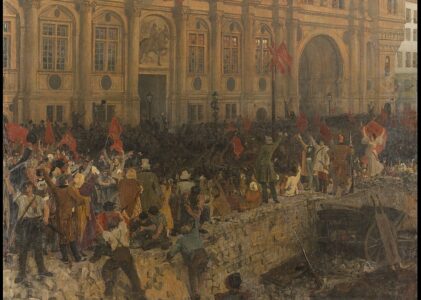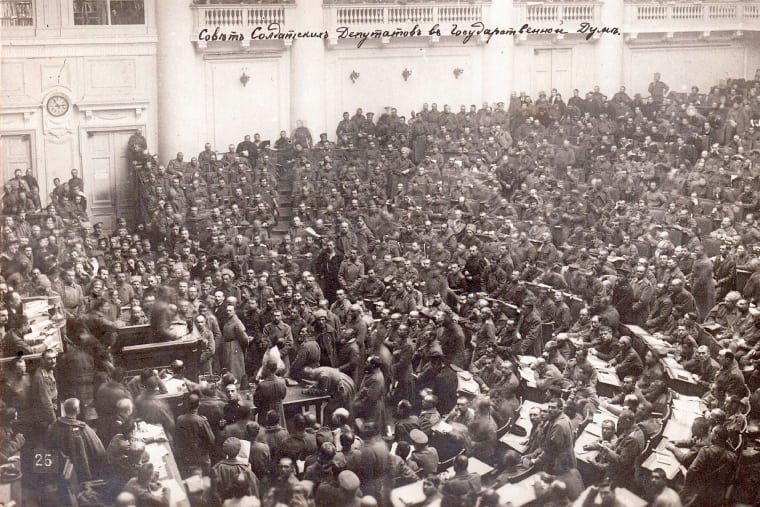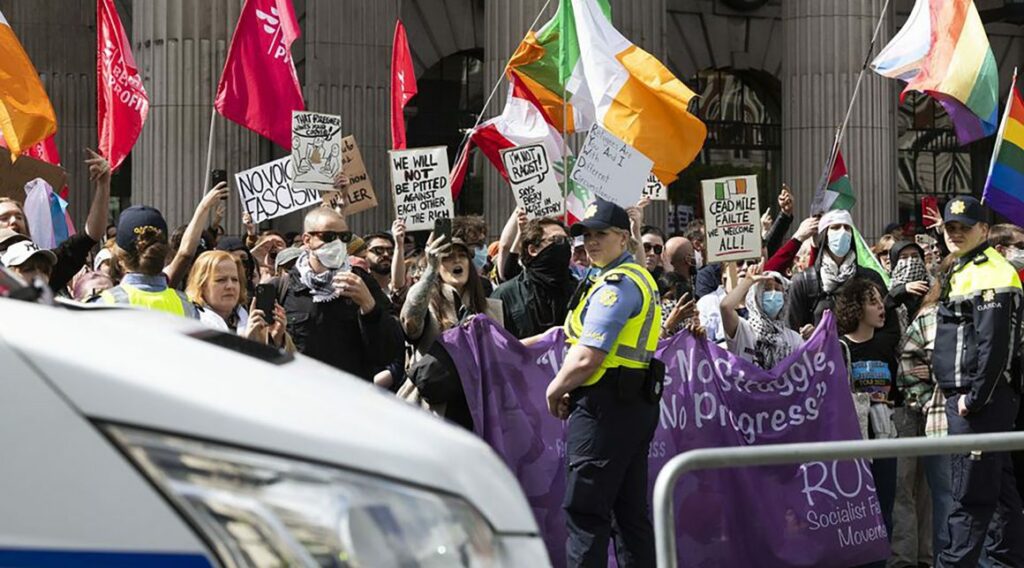László Molnárfi
Published 27.06.2025 in Red Star magazine on paper, this is a digital copy.
The Irish political culture is, in general, one of complacency; from school to university to the workplace we are taught to toe the line and refrain from trouble-making. The passivity of mainstream politics can be traced back to the British colonial domination of the country, which then transformed into the oppression unleashed by the Catholic Church, atrophying civil society and culminating in the crony capitalist class of Fine Gael and Fianna Fáil. So, beware that the dictator in a police uniform, clerical robe, or designer suit draws a singular lineage of subjugation. To fight back is profane, but keeping the peace is sacred; “ah, sure, it’ll be grand” becomes the prevailing attitude.
When mass civil disobedience is missing, injustice reigns. There is injustice everywhere and people across society know this. However, the energy to fight back is spurned by the ruling class and its handmaidens. The complacency of the Irish mainstream media when it comes to holding the powerful to account has often been noted, but our so-called leaders in the schools, the universities and the workplaces are co-opted by the State, too. That is to say, the so-called progressive leadership of our unions, political parties, and NGOs adopt the policies, mannerisms and networks of the ruling class, amalgamating into a permanent revolving door of lucrative job opportunities. They sell us out, suppressing our fighting spirits. The more powerful the ruling class, the more intoxicating its pull. In this way, the ruling class is invisibly occupying our unions. Do not make the mistake of thinking that what is, is all that can be. As our official leaders complain nothing can be done, remember that an ineffective leadership can be substituted for a radical leadership by popular will.
Our unions have abandoned their duty of political education. Political education involves the crafting and dissemination of political theory that examines the root causes of the issues we face. Pejoratively, the ruling class brands such literature as “ideological.” But ideology is merely a framework of looking at the world. To label something as ideological and therefore “bad” betrays an ideology of its own. One flavour of ideology differs from another in its ability to understand the objective world. An ideology always betrays a class perspective, in favour or against the interests of the working class. Marxism, and its method of historical materialism, can account for class struggle, which is the motor of capitalist oppression and the locus of the power of the working class. Class struggle is manifested in the profit-seeking bureaucracies of social institutions that surround us, where even seemingly reformist elements of civil society serve to reproduce capitalist ideology and social relations. These bureaucracies, while presenting themselves as agents of change, are structurally embedded within a system that prioritizes capital accumulation.
So, there can be no explanation of society that is not “ideological.” When union bosses advocate an apolitical perspective, this is in itself a political perspective. In reality, they have substituted one ideology for another. If radical politics dominated our unions decades ago, it is now dominated by the liberal consensus which declares itself pragmatic. Without radical groups which practice an ideological line, the power of the state and its various apparatuses – the school, the university, and the workplace – go unchecked.
In the case of schools, it is the task of radical students to begin the fight. Do not think that you are too young to make a change. The school unions, and the national secondary students’ union (ISSU) are characterised by a careerist streak. It is a far cry from the spirit of the early days of Tony Kinsella’s radical youth revolt in the 1970s, which called for the abolition of all divisions based on class, sex, race, religion, and physical ability, along with the separation of church and state in education and democratic schools made up of elected councils of students, parents, and staff, overseen by local education boards representing the broader community.
Yet, even from recent times, we can take inspiration from students at Colaiste Oiriall, in Co. Monaghan in 2015 who planned to walk out of the visit from the Taoisach during the anti-water charges movement. It is our duty to challenge authority. Rouse your peers out of their apathy. Speak on ideological lines in the classroom, fight the misogyny spread by people like Andrew Tate and target unfair policies ranging from zero-tolerance drug policies that disregard healthcare-based approaches, blanket bans on mobile phones and links with Israel. Fight for climate-friendly policies. Protest the visits of ministers. Organize educationals on radical history. Oppose militaristic dress codes, advocate for open-book assessments which vitalize the mind and stand up against reactionary-religious sexual education. Propose that the school fund free period products, meals and welfare services. Link up with sympathetic teachers, and after due research, advocate for the working conditions of employees all around the school. Start an independent newspaper where you can expose bad practices and distribute it online and in person, or seek media contacts in mainstream publications. Fight back against (unfair) parental and school authority and replace it with democratic parenting and schooling.
However, do pay attention in class, to learn about the world; to listen and think critically is an important skill. The opportunities for making change are plentiful, and this has been demonstrated time and time again by students protesting for marriage equality, abortion rights and climate change. Posing for pictures with Norma Foley is not the end of our ability to make change; it is, in fact, its opposite. Yes, take leadership roles in school unions and the ISSU and agitate for radical change. If these are not in place at your school, set one up. These are censored, manipulated and controlled institutions, but radical members can be turned towards more radical ends. A complete overturn of the apathetic culture of Ireland starts on the grassroots level, and it starts with you.
The apathy of the school political culture continues later with participation in university students’ unions and the national students’ union (USI). When our student union leaders pose for pictures with the ministers, with senior management and dress in formal attire, it is an indication of where their class allegiances lie. The radical student movement is at threat of disintegration. At a time when the austerity-driven agenda of the state is threatening to increase fees and further drive the academic sector into a financial crisis and underfund crucial welfare services, there is no fire in the belly of our leaders. If there is no one to fight for you, you must self-organize. Challenge the student union leader, the liberal professor in the classroom and the top-down policies of senior management. The students are already on your side; look to radical leaders or seek leadership yourself, and link up with sympathetic academic and professional workers in your institution. It is possible for a new generation to set in motion radical politics once again, and tens of thousands of students can be brought out on the streets as was done in the November 2010 anti-austerity protests. If you see an injustice, it is your task to craft a theory of change and spread the radical message. Do not take for granted the prevailing state of affairs. So, do not be afraid to take up the challenge, build a grassroots community and aim to take over the students’ unions. It is first and foremost the cultural hegemony of the liberal consensus to which we must take the hammer of popular will, smash it, and begin anew with radical politics.
In the workplace, it is the trade unions that are the first port of call for political engagement. Yet, these organizations have long abandoned their duty to educate the masses. The collapse of the miners’ strike in Britain in the 1980s under the brutal fist of Margaret Thatcher precipitated the social partnership approach of trade unions here in Ireland. That is to say, they have become parts of the system they ought to antagonise. These trade unions coalesce in the Irish Congress of Trade Unions (ICTU). They fight for piecemeal reform, not radical change, so that workers are paid fair wages, have a democratic say in the workplace and that economic trade with Israel is put to an end. We need to become shop stewards, challenge the boss and fight against overly-cautious trade union leaders.
It is not enough to merely participate in radical groups such as the Independent Workers’ Union (IWU). Red unions set apart from the majority of workers make a decent effort at raising class consciousness and developing worker-leaders, but they limit their own ability to reach the broader working class. It is significantly harder, but more rewarding, to tackle mainstream unions. Think of it as exorcising the state from the trade union; push its power out, establish a radical leadership, and familiarize yourself with Irish employment and trade union law, including the 1990 Industrial Relations Act and possible ways to circumvent and dismantle it. Just remember that legal limits, if the historical moment presents itself, can be transcended. The law is not the ultimate indicator of whether a strike – our foremost expression of class power as demonstrated by the Dunnes Stores strike in the 1980s – is possible or not.
Do you see then, student and worker, that the authority of the State, that tells you to stay in line, extends from the very moment you are born until the day you die? It is this assemblage that keeps us in line. It must be targeted at each level, vigorously, to develop a new democratic and revolutionary culture. As you will have noticed, we do not proclaim to know the answers. We want to empower you to fight these battles for yourself in your communities. Resistance to injustice in one place inspires resistance elsewhere; let it rise through collective power in each school, university and workplace. From the ashes of apathy a wildfire of tremendous force can be lit that will reverberate across Irish society. Let dissent flow from each facet of social life, from bottom to the top, and let this fight be embedded in each community, in our struggle for a 32 county socialist Ireland.




